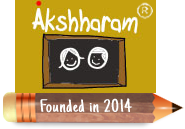Malayalam for Aussie-Born Kids: Can They Really Learn It Online?

In recent years, studies have shown an increasing trend of migration to different countries, a phenomenon particularly common among Malayalis. When families relocate together, concerns arise about their ability to pass on their mother tongue to their children and future generations. For Malayali families residing in Australia who want to teach their Australian-born children Malayalam, this presents a unique challenge, one that comes in addition to the everyday balancing of personal and professional responsibilities.
While parents strive to maintain cultural connections, limited access to formal Malayalam classes, a lack of peer interaction, and the dominance of English in daily life make language retention difficult.
This is where the rise of online platforms becomes a great blessing. With the help of emerging technologies and networks, teaching Malayalam has become more accessible. Now is the time for Akshharam to step in and support Australian parents. It’s time for these parents to find relief.
Let’s see if this is a successful move for Australian parents to rely on Akshharam for teaching Malayalam classes for children.
Is Akshharam an effective learning option for Australian-born kids?
For young residents in Australia, Akshharam is an interactive, exclusive, and culturally rich platform that makes learning Malayalam engaging and effective. By fusing diverse techniques and teaching methods, Akshharam creates a comprehensive educational experience, immersing students in structured yet culturally vibrant lessons.
- Accessibility: Since the academic curriculum and schooling in Australia follow different timings, the accessibility of online platforms makes it convenient for students to learn at their preferred time. In Australia, the education system follows a structured framework from ages 3 to 16, consisting of compulsory education divided into three stages: early childhood education, primary education, and secondary education.
- Expert faculty: Teachers at Akshharam are not only highly qualified but also exceptionally friendly, using child-centered techniques such as storytelling, role-playing, and weaving moral values into lessons through stories and history.
- What sets them apart is their deep understanding of the unique challenges faced by Australian-born Malayali children. They tailor their teaching methods accordingly, ensuring an engaging and effective learning experience.
- Interactive Curriculum: The platform offers level-based courses covering reading, writing, speaking, and comprehension, tailored for Australian kids to make learning easier and effective.
- Cultural integration: Every lesson includes moral values and linguistic immersion in Kerala with songs, old stories, and folktales, helping to connect with heritage.
- Flexible and convenient: Live and recorded sessions allow families to get connected at their own pace, fitting into busy schedules.
- Lack of social interaction: today's screen-driven habits and fatigue make kids lazy towards social interaction. There are many models and methods available combining personal teaching with in-person community events.
- Parental involvement is key: As the saying goes, "All learning begins at home." In the case of language learning, it starts at the very root, that is, the home. A parent’s communication and active involvement are essential for a child’s empowerment and improvement. Encouraging them to watch Malayalam movies and cartoons can fill the gap in language learning.
Why Akshharam is the best choice for kids in Australia?
Akshharam, a dedicated Malayalam learning platform, offers highly effective live classes with expert tutors and a structured, age-appropriate curriculum. Through cultural immersion using stories, songs, and interactive activities, it helps residents of Australia stay connected to their heritage.
Akshharam has a special learning pattern with different sessions. Where each stage is focused on the Malayalam language development of the child:
- The primary stage of learning Malayalam involves mastering the basics, including letters, sounds, and simple words, which aligns with Akshharam's Harishree Sessions, where learners familiarize themselves with all Malayalam alphabets, identify each letter and sound, and begin writing basic words.
- The Vaayanashaala Sessions are structured programs designed to help children develop reading-writing fluency and vocabulary. These sessions focus on vocabulary expansion and independent comprehension, aiming to build fluency through guided exercises, vocabulary acquisition, and sentence comprehension, fostering confident, self-driven learning in Malayalam.
- The Thoolika session by Akshharam aids children in constructing sentences independently, laying the foundation for conversational Malayalam.
- Then the concluding stage is application into real conversations, focusing on daily communication. This session is called the Kilikonchal session. Practicing with peers of the same age group helps kids connect worldwide through language. Activities of Akshharam are designed to put lessons into practice, boosting fluency and confidence in using the language authentically.
Why is Malayalam very important in Australia?
A child’s mother tongue is deeply significant for families living abroad, including the Malayalee community in Australia. As a multicultural nation that embraces diversity, Australia is home to people from over 200 countries, speaking more than 300 languages. While English is the primary language, the country encourages multilingualism, recognizing its cognitive, social, and cultural benefits.
Australia’s strong emphasis on community, education, and cultural preservation makes it an ideal place for migrants to maintain their heritage while integrating into society. For Malayalees, teaching Malayalam to their children in Australia is essential for several reasons:
Cultural Identity: It helps younger generations stay connected to their roots, traditions, and family values.
Family Bonds: Fluency in Malayalam allows children to communicate effortlessly with grandparents and relatives in Kerala, preserving emotional ties.
Cognitive Advantages: Bilingualism enhances memory, problem-solving skills, and academic performance.
Community Connection: Australia’s Malayalee associations, festivals, and language schools provide opportunities to celebrate and reinforce cultural heritage.
Conclusion
Though Malayalam is a minority language in Australia, its preservation ensures that future generations remain proud of their heritage while flourishing in their adopted homeland. By passing on the language, Malayalee families contribute to Australia’s rich multicultural tapestry while keeping their traditions alive
Akshharam’s Malayalam language writing class online are very accessible for the parents around Australia.
